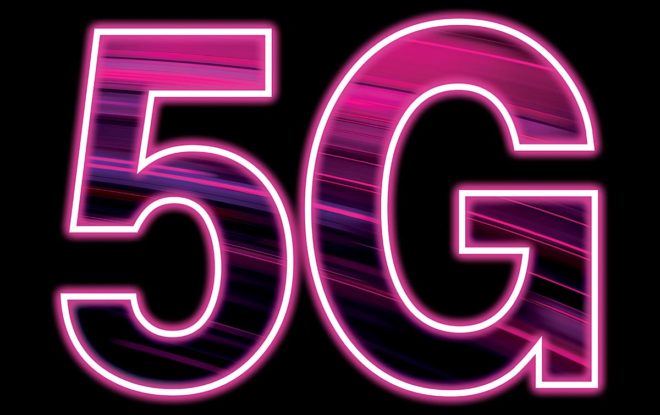
After giving us an update on its 5G network last week, T-Mobile today shared some info on its 5G rollout plans in the near future.
Neville Ray, T-Mobile’s president of technology, revealed today at the Oppenheimer 23rd Annual Technology, Internet, & Communications Conference that T-Mo was performing 5G radio upgrades on 600 cell sites every week in June and 700 every week in July. Ray says that T-Mobile is working to do even more and reach 800 upgrades per week.
Looking at 600MHz 5G upgrades, Ray said T-Mobile is “not slowing down” and that the upgrades are “relatively straightforward”. He explained that T-Mo has 700MHz on a lot of sites and so they change out a radio for one with a dual mode, dual band capability. This program of upgrades will continue through 2021.
And then there’s the 2.5GHz 5G upgrades, which are a bit more involved. T-Mobile is going to the sites and putting new 2.5GHz radios on the sites and there are backhaul upgrades and power upgrades as well. These upgrades can typically be done in 5 to 10 business days.
The total number of sites that T-Mobile plans to upgrade with 2.5GHz 5G is in the mid-50,000 range. Despite that work, Ray and T-Mobile are eager to get 2.5GHz 5G out there to customers. Ray teased that by the end of 2020, T-Mo will have thousands of 2.5GHz 5G sites, echoing what T-Mobile CEO Mike Sievert said on last week’s earnings call. And then in 2021, Ray wants to “break the back of 2.5GHz deployment in key urban areas and metros.”
One benefit of the 2.5GHz 5G rollout is faster download speeds. T-Mobile has said that so far in areas where its 2.5GHz 5G is available, it’s seeing average download speeds of 300Mbps. As it adds more sites and more spectrum to sites, the average 2.5GHz 5G download speeds should grow to 400Mbps by the end of the year.
Another important part of the 2.5GHz 5G rollout for T-Mobile will be in rural areas where it can be used with T-Mo’s Home Internet broadband service. Ray explains that this is because in a lot of rural places in the US, the home broadband choices are “awful” with regard to price and performance.
T-Mobile began its Home Internet pilot nearly a year-and-a-half ago, inviting customers to test its 4G LTE based Home Internet service. Last month that pilot test got its first big expansion, going live in the Grand Rapids, MI area for anyone interested whether they’re a T-Mobile customer or not.
Via: FierceWireless
Source: T-Mobile
